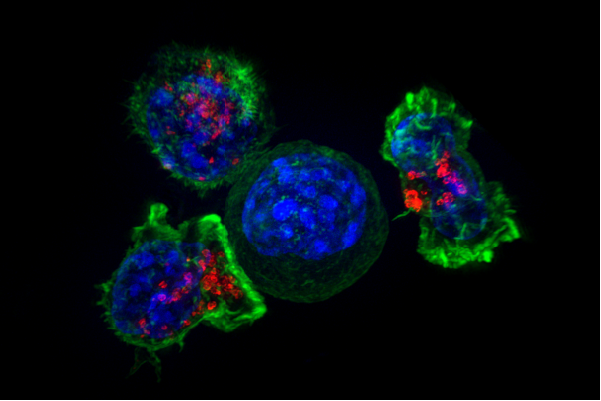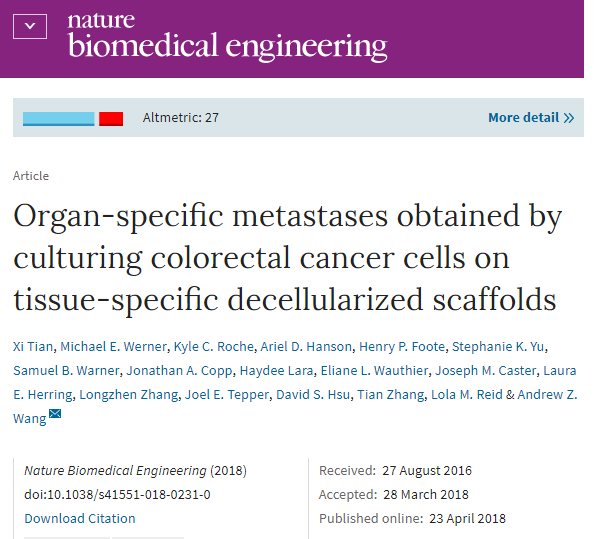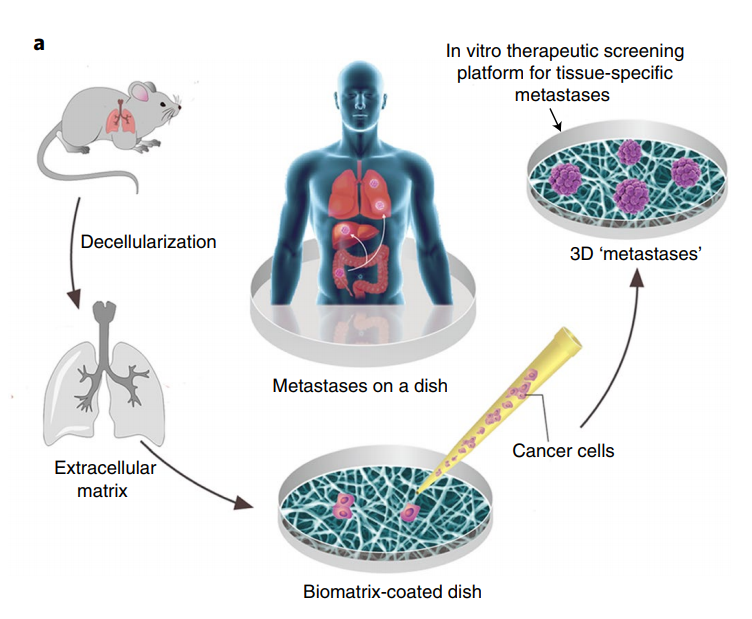Release date: 2018-04-26 The latest study is published in the journal Nature Biomedical Engineering under the title "Organ-specific metastases obtained by culturing colorectal cancer cells on tissue-specific decellularized scaffolds". Doi:10.1038/s41551-018-0231-0 “We know that when cancers metastasize, they selectively enter some organs,†said Andrew Wang, associate professor of the School of Radiation Oncology at the University of North Carolina's Lineberger Comprehensive Cancer Center. “This hypothesis is based on the 'seed and soil' theory. That is, cancer cells have something that drives them into specific organs, and the soil must be suitable for them to grow. Most scientists focus their attention on the "seed" of cancer cells instead of carefully observing the "soil" (cancer cells). The organ to go.)" Schematic depicting methodology used for studying metastatic disease in vitro Past researchers have used a number of techniques to study metastatic disease, including gels and other techniques to create a 3D environment in a dish to reflect the possible environment in the organ. But the researchers also said that the environment found in different types of tissues (such as the lungs or liver) may be different, and genetically engineered animal models of metastatic cancer are expensive and difficult to use. Wang and his colleagues created new cancer metastasis models by constructing organ structures made up of “decellularized†tissues that reflect the microenvironment that promotes tumor growth. To create these models, the researchers removed individual cells from the mouse's organs, but retained the remaining structural and signaling molecules that still provided organ structure. Wang said: "We are using advanced tissue engineering, which is being used to research new organs for people who need to transplant and apply them to cancer research." They created liver and lung organ models in this study. When they cultured colorectal cancer cells on these models, they closely mimicked human tissue samples and spontaneously formed three-dimensional tumor colonies with histological, molecular and phenotypic similarities. Transfer in the body. A key feature they see is the formation of "signet ring cells" (which is associated with poor prognosis of cancer). Professor Wang said: "As far as we know, this is unprecedented in cancer cells cultured in culture dishes. Our model will help us better understand the soil conditions that contribute to cancer metastasis. Moreover, culture systems with tissue-specific decellularized scaffolds are a simple and powerful method for studying organ-specific cancer metastasis." Reference material Scientists create better laboratory tools to study cancer's spread Source: Bio-Exploration Glass Funnel,Conical Glass Funnel,Glass Filter Funnel,Laboratory Glass Funnel Yancheng Rongtai Labware Co.,Ltd , https://www.rongtailab.com

